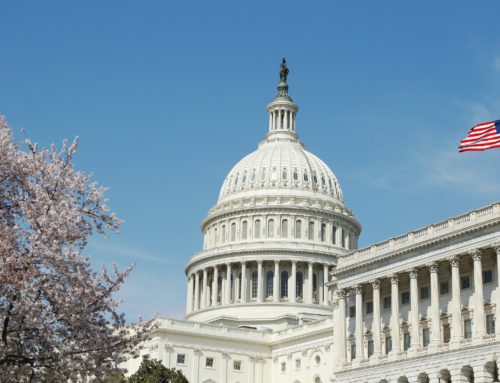Washington, D.C. – The Economic Innovation Group (EIG) applauds the Biden administration’s executive order on promoting competition signed today directing the Federal Trade Commission (FTC) to use its authorities to limit the use of non-compete agreements. EIG also urges the Biden administration to work with Congress to codify non-compete reform by passing the Workforce Mobility Act, a bipartisan bill that would place sweeping restrictions on the use of non-compete agreements nationally.
“EIG commends the Biden Administration for today’s executive order, which is an important first step on the path to ending the pervasive harms caused by non-compete clauses throughout our economy,” said John Lettieri, President and CEO of the Economic Innovation Group. “Non-compete reform would dramatically improve worker well-being through better wages and job opportunities, and would make our economy more innovative and entrepreneurial to the benefit of all Americans. Achieving lasting and far-reaching reform, however, will ultimately require changes in law. That is why we urge the administration to work with Congress to pass the bipartisan Workforce Mobility Act this year as part of the broader effort to rebuild our economy and ensure better opportunities for workers in the wake of the pandemic crisis.”
Between 20 to 40 percent of the American workforce are covered by a non-compete agreement. EIG analysis shows non-compete reform is necessary because it hurts worker wages, stifles entrepreneurship, and hinders innovation.
- Non-compete enforcement hurts worker wages – especially for historically marginalized workers: Stricter non-compete enforceability lowers earnings for women and minorities by twice as much than for white male workers. Other studies have shown that workers with less education experience larger negative wage impacts from non-competes.
- Non-competes stifle entrepreneurship: Strictly enforcing non-compete agreements significantly reduces new firm entry in knowledge-intensive growth sectors of the economy. The firms that do start tend to have fewer employees at launch and are more likely to die in their first three years. Non-competes deter would-be women entrepreneurs disproportionately.
- Non-competes hinder innovation: Non-competes make venture capital less effective in spurring new patents and job growth, and they obstruct the flow of knowledge by restricting the churn of workers among firms.
Last week, EIG submitted a comment to the FTC expressing support for non-compete reform and additional congressional action. EIG strongly supports the bipartisan Workforce Mobility Act reintroduced by Senators Todd Young (R-IN) and Chris Murphy (D-CT) with Kevin Cramer (R-ND) and Tim Kaine (D-VA) in February 2021 with leadership on the House side from U.S. Representatives Scott Peters (D-CA-52), Mike Gallagher (R-WI-8), Anna Eshoo (D-CA-18), and Peter Meijer (R-MI-03).
EIG Media Contact: [email protected]
About the Economic Innovation Group (EIG)
The Economic Innovation Group (EIG) is a bipartisan ideas laboratory and advocacy organization whose mission is to advance solutions that empower entrepreneurs and investors to forge a more dynamic American economy. Headquartered in Washington, D.C., EIG convenes leading experts from the public and private sectors, produces original research, and works to advance creative legislative proposals that will bring new jobs, investment, and economic growth to communities across the nation. For more information, visit eig.org.
###






